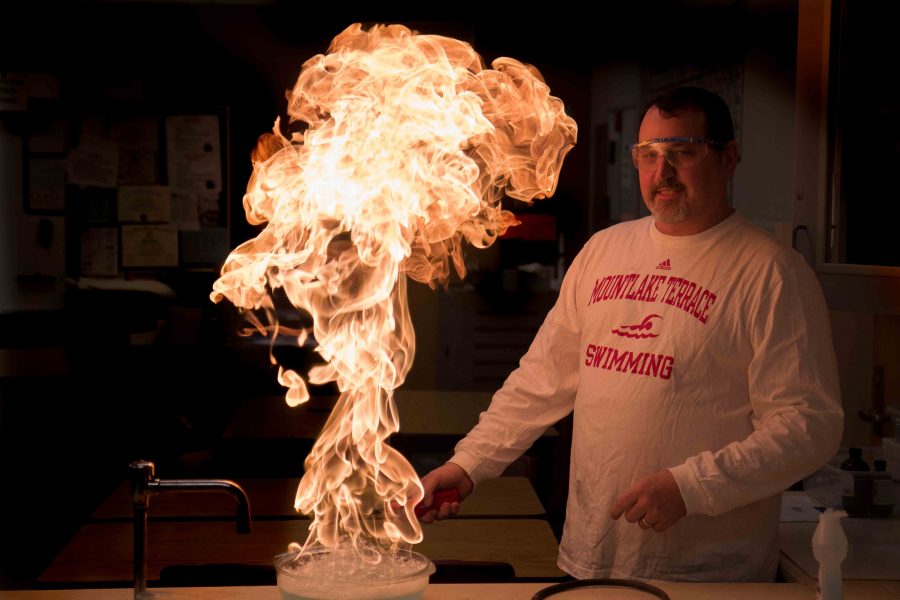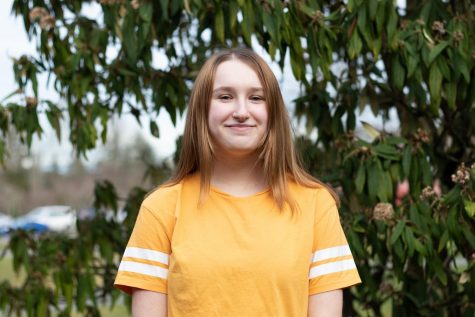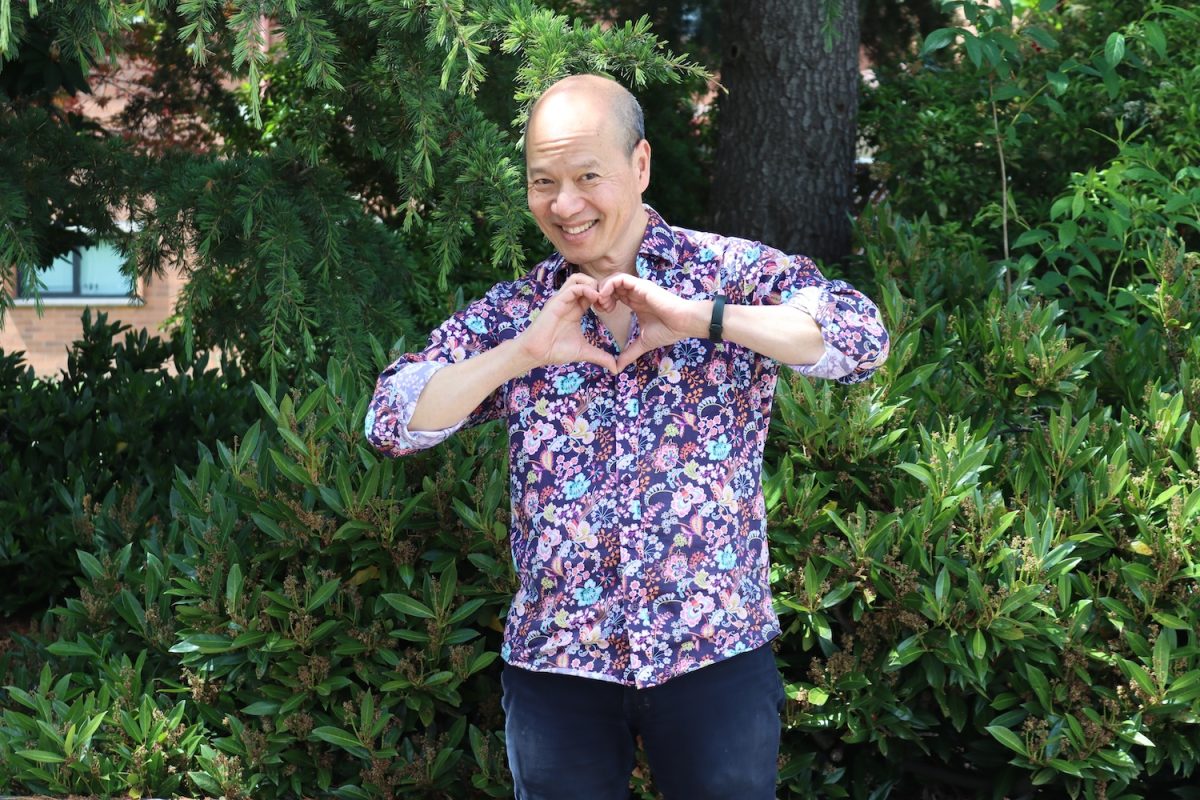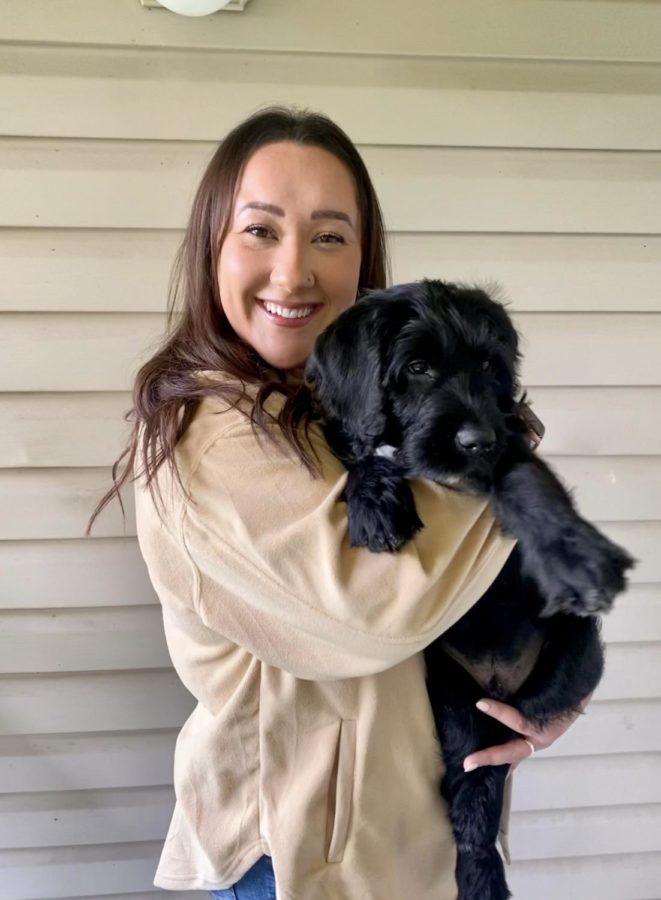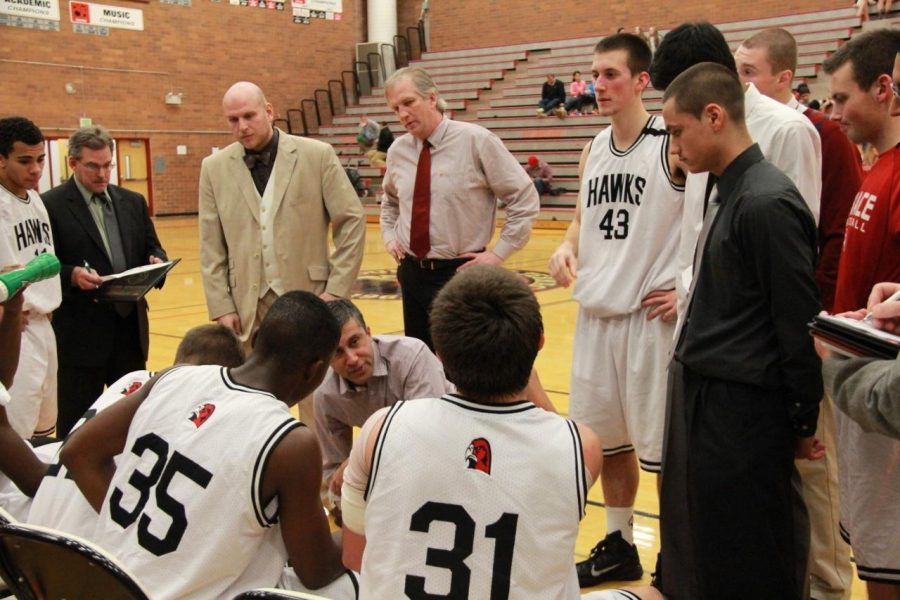Back when he used to teach biology, he released a bunch of crickets on accident and it took years before they all died off. Another day, he was washing dishes in the back room and the fire alarm was set off.
“I forgot to turn off the water and a petri dish fell over the sink. The fire turned out to be real so it was about three hours until we got back in the building,” he said. “When I came back into the building there was about two inches of water from my room all the way to the other room.”
He has also done an experiment where he lit a methanol cannon and a little drop of it fell into a box of magazines. The magazines slowly smoldered and caught on fire; the fire engines came but the fire was put out before they arrived.
“Yeah, I’m still surprised I have a job,” he laughed.
The beginning:
It all started when science teacher John Traxler was a little baby, born on March 23, 1966. He grew up in Mountlake Terrace, Wash. and had five siblings; two older brothers, one older sister and two younger sisters. During Traxler’s high school years, when he attended MTHS, he was involved in football, soccer and swimming.
“I was a very good [student], but I was a bit of a troublemaker,” he said.
During his senior year at MTHS he popped out of a box and stripped down to his speedo and a black bow tie while the band was playing “The Stripper” by David Rose.
“I was in a lot better shape back then… A lot better shape,” he laughed.
During his free time in high school, Traxler fell in love with hiking. He was an avid member of the Hiking Club during his high school career, which went hiking once a month around Washington.
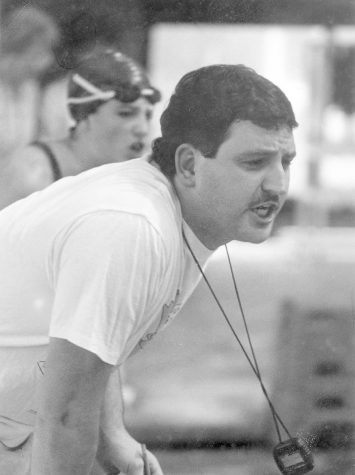
Two of his three sisters were Terrace homecoming queens. His two brothers didn’t graduate but both went on to get their General Education Development (GED). One is a nurse while the other is a tugboat captain.
“[My brothers] did well in life but they didn’t like school so much. They got in a lot of trouble,” Traxler said.
Traxler graduated with the class of 1984 and moved on to go to college at the University of Washington (UW).
“Oh, I loved [college]. It was hard but I enjoyed the challenge,” he said, reminiscing on his four years at UW.
His favorite part, he said, was attending the football games and the numerous friends he made along the way.
“I don’t think I was different in high school than the way I [acted in college],” Traxler said. “I was more serious in college and I was paying for it myself so there was no way I was going to fail a class or repeat one.”
Traxler would later go on to receive his bachelor’s degree in biology and has a minor in chemistry —similar to his own high school chemistry teacher, former MTHS science teacher Gil Comeau.
Teaching:
His chemistry teacher was his favorite, along with the class. When he first started working at MTHS 27 years ago, he taught biology and master math. But the moment a chemistry position opened,he took it and found out he liked teaching it more than anything else.
“It’s more hands on and more get out of your seat,” Traxler said.
Out of all the years Traxler has worked here, one of his favorite moments was when the students and PTA elected him teacher of the year.
“[It was] a huge honor and I was really proud of that,” Traxler said.
But the things he remembers the most are certain kids who he’s met over the years.
“I’ve been to a dozen ex-students’ weddings and they come in and show me their kids,” Traxler said. “That’s the part I like the most.”
Traxler developed the Advanced Placement (AP) Chemistry program 15 years ago.
“There were no AP science classes [at the time],” Traxler said, “and I was getting bored so I started the AP Chemistry program.”
He would later encourage the biology teacher Jamie Tanakas to start an AP Biology program, as well as the physics teacher Gil Comeau.
“Chemistry is life. The more we understand it, the more we understand the world and life itself and the more we can control it,” Traxler said.
Chemists are now starting to figure out the chemistry of the brain and even love, Traxler said.
There are realistic ways you can apply chemistry to your everyday life, from which chemicals best mix to which gas is the best to use.
“Little things like you’re paying 20 cents more to get your gas at Chevron than at ARCO,” Traxler said as an example.
A student should take an AP class to challenge themselves, according to Traxler.
Not only should they consider taking a science class but they should also take one they find the most interesting and talk to the teacher who teaches that class.
AP Chemistry is a lot harder and you’re expected to learn it more on your own, Traxler said.
“You’re expected to know it so well I can ask you a question in any way about it,” he said.
For Traxler, the chemical compound he could think of with the “coolest” reaction was 30 percent hydrogen peroxide.
“Sometimes the science textbooks call [the chemical] ‘elephant toothpaste.’ You get this big set of bubbles; the bubbles make the fire go faster,” he explained. “Then you turn off the fire and the fire comes back on.”
Later in the year, Traxler’s classes do an experiment in both his AP chem and regular chem called “Visual Purple.” Students sit in a completely dark room for half an hour, then are taken outside and are told to open their eyes and close them quickly. A perfect black and white picture will form inside the brain until you open your eyes again.
Coach Traxler
For the first 12 years he worked at MTHS he coached both the men and women’s swim team. At first, MTHS was a double A team and he had eight men and 11 women on his teams. But 12 years later, he had 38 men and 53 women, and MTHS went from being one of the lowest ranked teams in the district to above average. However, Traxler would have to retire as the swim coach due to his own personal life.
“There was no way I could keep coaching. I had just gotten married and had a kid. I had to give it up because I like my own kids more than I like you guys,” he joked.
One year he made a bet with his men’s team that if they won the school district meet he would dye his hair blonde. There were five teams in the Edmonds School District, and MTHS was expected to be last out of those five teams. MTHS tied for first and, since it wasn’t an outright win, he told his teams he would instead dye it half blonde.
“I looked like a 30-year-old guy trying to be a 20-year-old,” Traxler said.
When they had won, no one even knew they had won. Everyone assumed they did win and the other team was starting to leave.
“We were going so crazy,” he said. Then the judges told them they had tied and the other team came back to get their trophy.
Out of those 12 years of coaching he left with some good experiences that would help advance his teaching career.
“You begin to learn that it’s all individual and that some of your students will be coming in not knowing how to learn chemistry,” he said.
This is just like how some students may join the swim team and barely know how to swim. They will need to be taught differently than someone who comes in with experience; like someone who comes in and can do the butterfly and can do it on their own.
“You really start to appreciate that learning is a lot like being an athlete,” Traxler said. “Not everyone is going to have the same skills and coaching will help you understand that part of teaching.”
Similar to how there are a lot of teachers who think that everyone should be able to write an essay.
“Well… maybe an essay is a lot like swimming the butterfly,” Traxler used as a simile. “Not everyone can do it but you can teach everyone how to do the butterfly. But not everyone is going to do it greatly.”
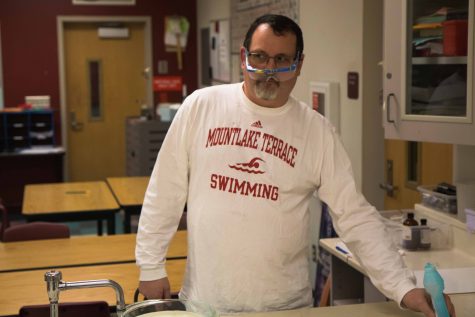
After putting on safety goggles to perform an experiment, Traxler remembered he was wearing his regular glasses as well.


